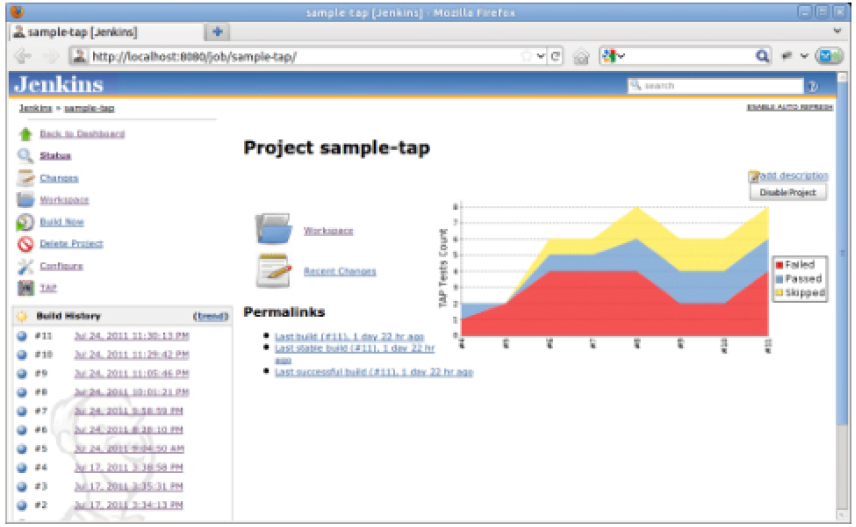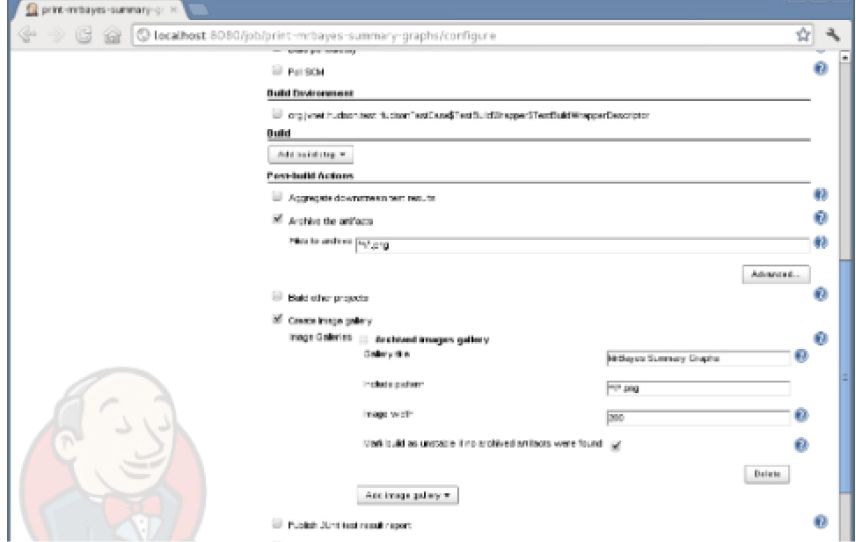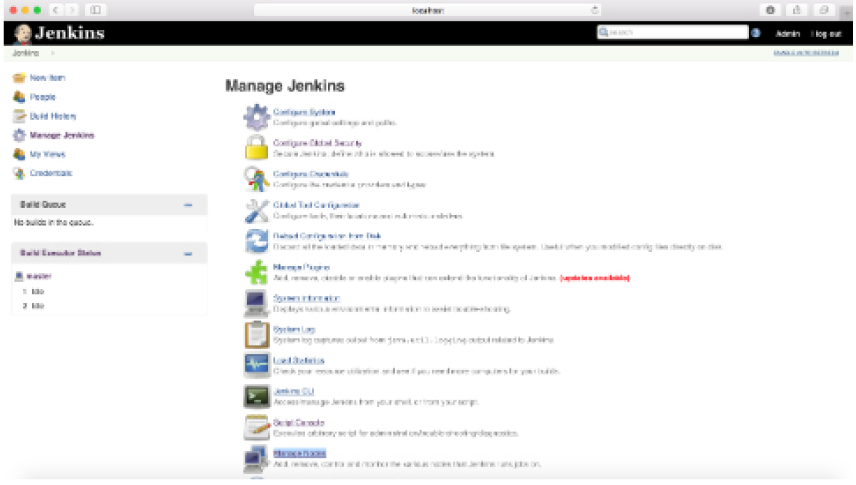Jenkins is called ‘Jenkins’ for a reason! Jenkins is the name of the Butler for Daphne Blake in the cartoon series Scooby-Doo. A butler that carried out most of the domestic chores in the household. Jenkins, the popular CI/CD tool, serves the same purpose. Jenkins can act as your personal servant for many of your day-to-day QA and test automation tasks.
With a good understanding of how to employ Jenkins you can gain significant productivity benefits. More than this, you can delegate many of those repetitive tasks you’re just plain bored of doing over and over again. Jenkins can help with saving countless hours on application installs, configuration management, database test data setup and much much more.
With this course designed specifically for testers and test automation engineers we show you how to…

Build a large scale parallel test execution grid

Understand the power of Jenkins plugins

See how Jenkins and Git/SVN improves team work

Build an end-to-end framework for test execution and reporting

Implement automation solutions designed for Agile projects

Create a continuous testing pipeline as part of the CI/CD process
Need More Course Info?
We run regular Jenkins training courses that are designed specifically for testers and test automation engineers. Find out more…
Who are these courses for?
- Testers who need to automate repetitive QA processes that should be running on auto pilot
- Testers who want to get in to automation and need a solid framework within which to operate
- Test Automation engineers who need to build out a continuous testing framework with tools like Selenium
This is a course designed, written and presented by a tester for testers. No airy-fairy theory. Just practical solutions and techniques for every day QA challenges.
Course Outline
This course will teach you how to use Jenkins for Automated Testing. Weíll start out by walking you through the initial install of Jenkins (so that you have your own dedicated environment to work in). Over the duration of the course, we’ll build up to creating a real suite of automated tests, including GUI, Load and API tests, all driven from Jenkin
You’ll learn how to configure Jenkins projects, trigger the execution of your tests automatically and deploy those tests to a matrix of client machines. The process of building out a range of different Jenkins job types will take you through a comprehensive range of functional plug-ins that all make your day-to-day life as a tester and QA engineer far easier.

1
Installing Jenkins
One of the big advantages of Jenkins is just how simple it is to set up. We’ll take you through the install and get you started with your own dedicated install to practice on.
2
Working with Jenkins Plugins
Another strength of Jenkins is the massive range of additional plugins that are available. Plugins that can help automate all manner of QA and test processes. We’ll take you through the most useful ones.
3
Configuring Selenium
If you’re automating your tests with Selenium then we’ll show you how to plug Selenium into your Jenkins setup. Whilst we don’t go into detail on testing with Selenium we’ll guide you through the complexity of this setup.
4
Configuring SoapUI
Another key aspect of running automated tests from Jenkins is the ability to run API tests. In this module, we’ll look at linking SoapUI so that API tests can be initiated and results captured in Jenkins.
5
Integration with Git and SVN
When you store your automated tests in source code control repositories you not only provide critical team collaboration capabilities but you open up the ability to drive Jenkins from your source code repository.
6
Configuring JMeter
Load testing tends to get left behind in the CI/CD chain. Yet with a few self-contained load tests plugged into Jenkins you can capture performance issues as you deploy and test every build of your application.


7
Unit Test Frameworks
Jenkins has strong support for the most popular Unit Test frameworks. There are even plugins that will create graphical dashboard reports directly from unit test results. We show you how to set all of this up for maximum visibility of your test status.
8
Distributed Testing
Yet another strength of Jenkins is the ability to set up client machines to which you can distribute your tests and run everything in parallel. We show you how to setup up grids of execution machines and how to configure everything with the multi-config plugin.
9
Dashboards and Reporting
Whilst different plugins will provide useful builtin dashboards and reporting capabilities we show you how to integrate with common test management tools for combined manual and automated test result reporting.
Request Course Brochure
If you’d like us to send you a full course brochure please complete the form below and we’ll send one over in the next 24 hours.
”With continuous testing now a key part of the CI and CD pipeline, the testers ability to work within this development environment becomes a critical testing skill.”
FAQ
Do I need to be a Test Automation Engineer?
No. You donít have to be a test automation engineer to derive significant benefits from Jenkins. Just a little understanding of Jenkins can go a long way towards saving countless hours on application install, configuration management, database test data setup and much much more.
Other Tools
The core course focuses on integration with Selenium, SoapUi and JMeter. We can customise the course to cover other tools depending on your tool set (for example TestComplete, Post-Man, etc).
Requirements
You will need to have had a few years experience in a test role to get the most out of this course. However, you do not need to have any test automation experience. No prior knowledge of the tools covered (like Selenium, SoapUi or JMeter) is assumed.
Duration
The standard course typically runs for 3 days. We can customise the content and adjust the duration to fit specific requirements if needed.
Intended Audience
This course is designed for testers and QA engineers. You do not need to have experience in an automation role to attend this course. If you are already in a test automation role but have no experience of Jenkins, then this course is suitable for you too.
Public
We run regular public courses that anyone can attend. These courses are usually held in London, Manchester and Glasgow. We will often run in other locations too when there is enough demand.
On-site
If you have 4 or more people that need training then it is usually more cost-effective to run a dedicated on-site course. On-site courses have more scope for customisation too. Please contact us for details.
Price
Request the latest brochure and weíll send you the price list for both Public and On-site courses.
You May Also Be Interested In
On-site Courses
If you have 4 or more people who wish to attend this course it’s usually cost effective to run an on-site course. Contact us and we’ll send you more details.
Contact UsSpecific Requirements?
Do you have your own organisational setup and configuration of Jenkins? Need us to create a custom course for you? Contact us and weíll see what we can do to help.
Contact UsPublic Courses
If you’d like to join our next public course then contact us and we’ll send you the dates, locations and availability details.
Contact Us





